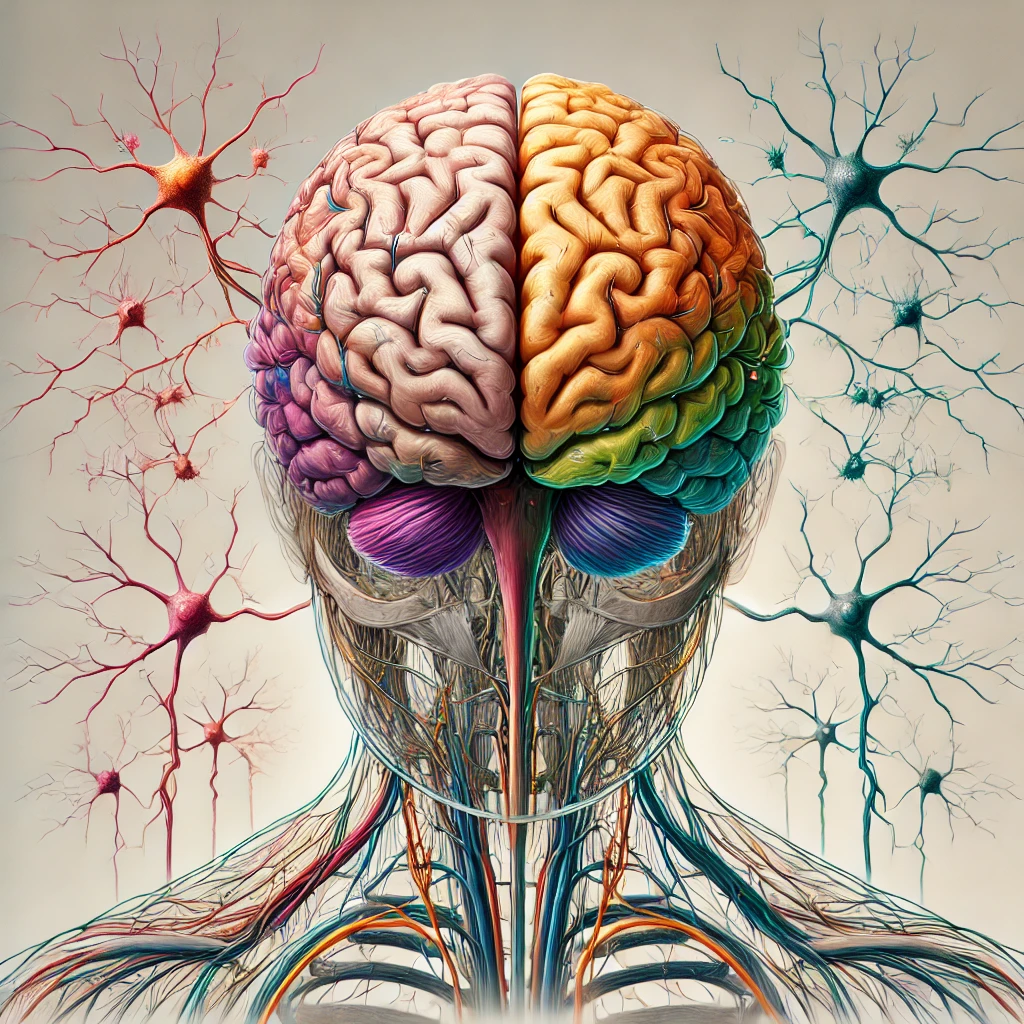Exploring Neuroplasticity
Insights into the Power of Neuroplasticity
Aging is a complex process that affects every organ and system in the body, including the neurologic system. The neurologic system controls vital functions, from cognition and movement to sensory processing and autonomic regulation. As we age, the brain and nervous system undergo structural and functional changes that can impact daily life and increase the risk of neurologic diseases.
This article delves into the neurologic system’s aging secrets, offering insights into these changes, their implications, and tips for maintaining brain and nervous system health.
How Does Aging Affect the Neurologic System?
The neurologic system, including the brain, spinal cord, and peripheral nerves, undergoes various changes with age. These changes can manifest as cognitive decline, slower reflexes, reduced sensory perception, and autonomic dysregulation.
1. Structural Changes in the Brain
By age 80, individuals may experience a 30% loss of brain mass, particularly in the gray matter. This reduction impacts neural density, signal transmission, and overall brain function.
2. Neurotransmitter Production
Aging leads to a decline in neurotransmitter production, which affects mood, cognition, and motor control:
- Reduced levels of catecholamines, serotonin, and acetylcholine impair memory, mood regulation, and focus.
- Decreased dopamine uptake sites and transporters contribute to slower movements and reduced coordination.
- Depleted gamma-aminobutyric acid (GABA) binding sites affect neural inhibition, potentially leading to increased neural excitability.
3. Nerve Conduction and Signal Transmission
- Decreased conduction velocity in motor, sensory, and autonomic nerves slows reflexes and responses to stimuli.
- A decline in signal transduction rate of the brainstem and spinal cord affects coordination and balance.
4. Muscle and Nerve Interactions
- Denervation and muscular atrophy occur as motor neurons die or lose connectivity.
- Blunted response to beta-adrenergic stimulation reduces the ability to respond to stress and exertion.
5. Autonomic Nervous System Dysregulation
- Aging weakens aortic arch and carotid sinus baroreceptors, impairing blood pressure regulation.
- Heart rate response to arterial pressure changes diminishes, increasing the risk of fainting (syncope).
- Autonomic dysregulation leads to greater susceptibility to conditions like orthostatic hypotension.
Common Neurologic Issues Associated with Aging
Understanding the neurologic system’s aging secrets helps us recognize common age-related neurologic issues:
1. Cognitive Decline
Memory lapses and slower information processing are common. While mild cognitive impairment (MCI) is often a normal part of aging, it can progress to dementia in some cases.
2. Neuropathies
Peripheral nerve damage causes symptoms like tingling, numbness, or pain, often seen in conditions like diabetic neuropathy.
3. Movement Disorders
Reduced dopamine levels contribute to movement disorders such as Parkinson’s disease, characterized by tremors, rigidity, and slowed movement.
4. Autonomic Nervous System Disorders
Conditions like orthostatic hypotension and syncope become more prevalent due to autonomic dysregulation.
5. Increased Risk of Stroke
Aging contributes to vascular changes and blood pressure dysregulation, increasing the likelihood of ischemic or hemorrhagic strokes.
Tips to Maintain Neurologic Health as You Age
While aging is inevitable, there are steps you can take to support brain and nervous system health:
1. Stay Physically Active
Exercise increases blood flow to the brain and promotes the release of neurotrophic factors, supporting neuron survival and growth.
2. Keep Mentally Stimulated
Engage in cognitive activities like puzzles, reading, or learning new skills to maintain neuroplasticity and cognitive function.
3. Follow a Brain-Healthy Diet
Adopt a diet rich in antioxidants, healthy fats, and nutrients such as:
- Omega-3 fatty acids (found in fish, walnuts, and flaxseeds)
- Vitamins B6, B12, and folate for nerve health
- Polyphenols in berries to combat oxidative stress
4. Get Enough Sleep
Sleep is essential for memory consolidation and clearing waste products from the brain, such as beta-amyloid, which is associated with Alzheimer’s disease.
5. Manage Stress
Chronic stress negatively impacts brain function. Practices like yoga, meditation, and mindfulness can help regulate stress levels.
6. Regular Health Checkups
Early detection and management of conditions like hypertension, diabetes, and hyperlipidemia can protect the neurologic system from damage.
When to Seek Medical Advice
Consult a healthcare professional if you notice:
- Sudden changes in memory, thinking, or behavior
- Frequent dizziness or fainting spells
- Persistent numbness or tingling in the limbs
- Tremors or difficulty with movement
Early intervention can slow progression and improve quality of life.
FAQs About Aging and the Neurologic System
Q: Is memory loss a normal part of aging?
A: Mild memory lapses are normal, but significant memory loss may indicate conditions like Alzheimer’s disease or vascular dementia.
Q: Can exercise improve neurologic health?
A: Yes, regular physical activity boosts brain health by enhancing blood flow, promoting neurogenesis, and reducing inflammation.
Q: How does aging affect neurotransmitters?
A: Aging reduces the production and uptake of neurotransmitters like dopamine and serotonin, impacting mood, movement, and cognitive functions.
Q: Are there specific foods that support brain health?
A: Foods rich in antioxidants, omega-3 fatty acids, and B vitamins—such as fatty fish, nuts, leafy greens, and berries—are excellent for brain health.
https://www.nia.nih.gov/health/brain-and-nervous-system
This page from the National Institute on Aging provides valuable insights into how the brain and nervous system change with age and tips to maintain brain health.



